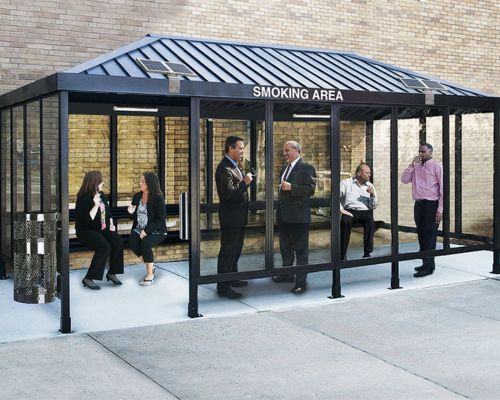
Cigarettes are among the main sources of contamination; they harm everyone passively in small doses. Public places rely on people to maintain a clean space and a safe environment where others can safely live without worrying about their health.
These tips for preventing cigarette litter at public transit stops will make it easier to separate smokers from non-smokers, minimize contamination, and allow everyone to enjoy public transit.
“No Smoking” Policies
Cigarette smoke affects everyone in proximity, which could cause health problems. Creating no-smoking policies at public transit stops will cultivate a healthier environment around the transit lines and the surrounding neighborhoods.
States nationwide have laws and regulations that prohibit smoking in countless public spaces. Violating these rules can result in fines and penalties. Expanding on these policies will minimize cigarette use, improve public health, and reduce the littering that results from smoking cigarettes.
Ashtrays and Containers
Ashtrays are the best solutions for cigarette waste management and effectively keeping a space free of cigarette butts. Every bus stop would greatly benefit from metal ashtrays to hold ash and cigarette butts without the risk of starting a fire.
An outdoor smoking shelter can separate the waiting area at public transit stops into two, which would keep smokers away from non-smokers. Prefabricated shelters have unique features and specifications to effectively deal with cigarette waste, smoke, and air circulation.
Educating Commuters
Many companies use ads and marketing techniques at transit stops to advertise certain products or services; cities also use these spaces to educate citizens. Displaying health and safety information regarding smoking can help everyone prevent cigarette litter and maintain cleaner and more functional public transit stops.
Educating commuters about the dangers and challenges of cigarettes through graphic content like pictures will have a stronger impact. People react to scenarios they can relate to, so using real-life examples can help citizens learn about keeping transit stops clean.
